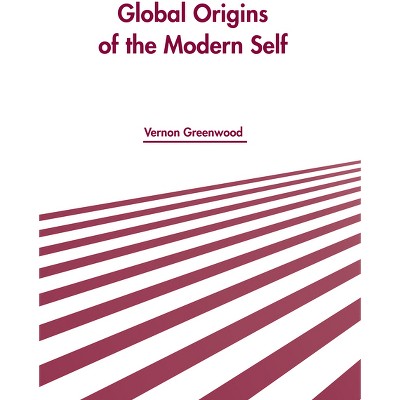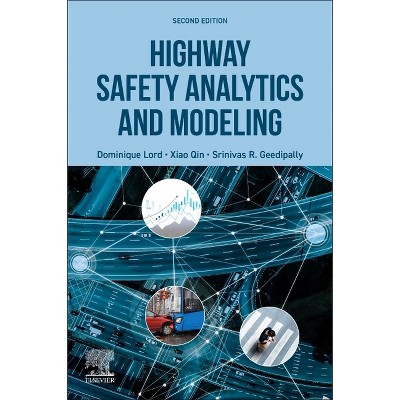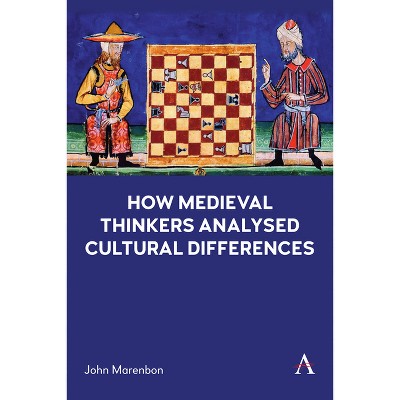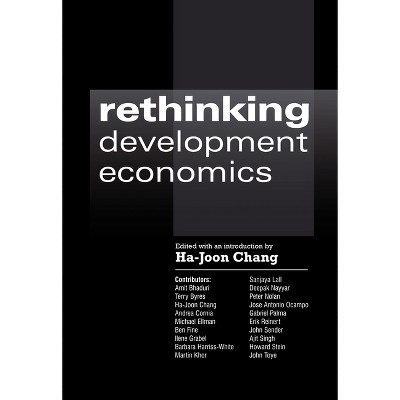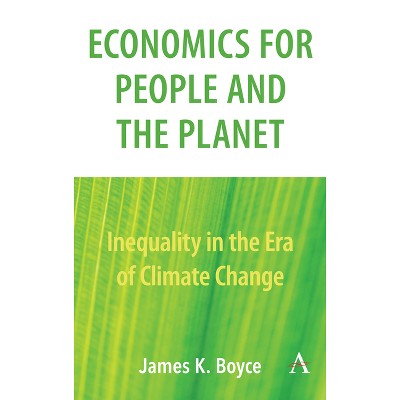Sponsored

Cultural Differences Between the West and East Asia and Their Impacts on Global Economy - by Diana S Kwan & Fu-Lai Tony Yu (Hardcover)
Pre-order
Sponsored
About this item
Highlights
- Uses an evolutionary perspective and interpretative methods to explore economic and social transformations in the United States and China, highlighting the roles of culture, institutions and entrepreneurship in policy change.
- About the Author: Diana S. Kwan is currently community placements administrator at the Faculty of Medical Sciences, University College London.
- 200 Pages
- Business + Money Management, Development
Description
About the Book
This book highlights the roles of culture and institutions on economic change. In particular, it compares cultures between the United States and China and examines their impacts on entrepreneurship, innovation capabilities, and economic and social changes. It also covers their impacts on everyday life creativity, intellectual property protection, combating global infectious diseases, and political and foreign affairs.
Book Synopsis
Uses an evolutionary perspective and interpretative methods to explore economic and social transformations in the United States and China, highlighting the roles of culture, institutions and entrepreneurship in policy change.
This volume consists of three parts, comprising 15 chapters. It highlights the roles of culture and institutions on economic and social changes. The West is illustrated by the United States, Britain or Canada and East Asia, by chopstick economies such as China, Taiwan and Hong Kong. Part I is the theoretical framework. It contains five chapters. Chapter 1 (Searching for Good Learner: Uncertainty and Learning in the Evolutionary Approach) employs the evolutionary perspective to interpret economic and social transformations. Chapter 2 (Culture and Institutions on Economic Transformation) explains the relationship between traditional belief/ideology/religion and culture. The West adopts rule of law while the East, rule by law. In chapter 3 (Quilt and Shame Cultures: Anglosphere versus Chopstick Economies), a Christian nation in Western economies, such as the United States, is identified as a society of guilt while chopstick economies in East Asia, such as China, are embedded with Confucianism, a society of shame. Cultural difference has implications on social control and educational reform. In chapter 4 (Chinese Legalism and European Mercantilism), contemporary China utilises Confucianism supplemented by Legalism to strengthen the state power. Legalism is akin to European Mercantilism. Chapter 5 (An Imagined Social World in the West and East) highlights the imagined world in the West and East.
- Part II presents different cases in entrepreneurship and everyday life creativity. Chapter 6 (Entrepreneurship: Transformative and Adaptive) argues that the United States, due to individualism and self-assertion, brings technological breakthroughs in the world while Asian economies such as China receive training in Confucianism, and provide the world with mainly adaptive entrepreneurs and imitative products. Culture makes a difference in entrepreneurship and hence economic transformation. Chapter 7 (Intellectual Property Protection: The Case of Semiconductor) explains the origin of the disputes in the U.S.-China intellectual property protection. It is illustrated by Huawei, a learner in technological transfer. Chapter 8 (The 'New Opium War' On Supplying Fentanyl) argues that China's ways of handling the production and consumption of fentanyl contrast sharply with the Western powers. Fentanyl crisis is the New Opium War! Chapter 9 (Electoral versus Authoritarian States: Combating Coronavirus Disease Pandemic) compares pandemic-associated measures in the United States and China. It reveals that culture counts in tackling global responses to infectious diseases. Chapter 10 (If Shakespeare Is the West, then Jin Yong is the East) compares the works of Shakespeare and Jin Yong. Shakespeare works focus on individualism and self-reliance while Yin Yong works stress on familism and patriotism.
- Part III highlights the impacts of culture on Chinese economies. Chapter 11 (A Winning Tactic? Social Construction of Party Reality in Socialist China) explains how Mao Zedong turned Chinese peasanty, if not serfs, into a winning game for his party. Peasanty were 'oppressed' by their landlords. After painbearers 'spoke out' their suffering and killed the landlords, they could 'stand up' again. They supported the Chinese Communist Party instead of the Nationalist Party (Kuomintang). Chapter 12 (Culture, Nationalism and Wolf Warrior Diplomacy) argues that foreign policy reflects culture and history. China's wolf warrior diplomacy traces its roots back to culture. Chapter 13 (Sharing the Same Culture versus Different National Identities in Taiwan) examines whether the same culture will entail different impacts on Taiwan's politics. It also explores whether different national identities affect Taiwan's political affairs and economic transformation. To further reveal the impacts of cultural differences on policy change, the authors use Hong Kong as a case study (Chapter 14: British Hong Kong versus Post-1997 Hong Kong: Economic and Social Transformation). They examine if British ruling (representing Western culture) entails any impact on the economy and society in Hong Kong (now a Chinese city). Chapter 15 (Western Culture in Hong Kong: Hong Rengan and Robert Ho Tung Bosman) explains and illustrates how Hong Rengan (Taiping Heavenly Kingdom) and Robert Ho Tung Bosman (a member of Hong Kong Legislative Council) absorb Western knowledge in Hong Kong. Deeply embedded with Chinese culture, Hong could not help the Taiping Heavenly Kingdom to establish a real republic in China. Ho's flexibility and dual identities helped him work comfortably in Hong Kong, thus setting up a pre-condition for Hong Kong to move into a global financial centre.
About the Author
Diana S. Kwan is currently community placements administrator at the Faculty of Medical Sciences, University College London.Fu-Lai Tony Yu was former adjunct professor at the Department of Land Management, Feng Chia University, and emeritus professor at Hong Kong Shue Yan University.


